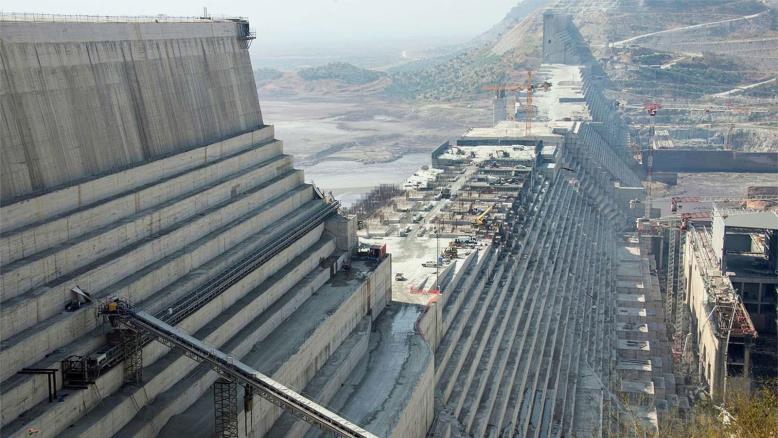The Sudanese Ministry of Irrigation and Water Resources announced today, Friday, the return of Sudan, Egypt and Ethiopia to negotiations to resolve their differences over the Ethiopian Renaissance Dam brokered by the African Union.
"This afternoon, with video technology, negotiations for the Renaissance Dam between Egypt, Ethiopia and Sudan under the supervision of African mediation, led by South Africa - which holds the presidency of the current session of the African Union, have resumed," the ministry said in a statement.
After last Friday, a mini-African summit, Cairo and Khartoum announced the agreement to form an Egyptian-Sudanese Ethiopian expert committee with the participation of representatives of the member states of the African Union Presidency Office and the international bodies monitoring the dam negotiations, to "formulate a binding agreement on the Renaissance Dam", but Addis Ababa said Saturday Last, it would start filling the dam in two weeks.
On Wednesday, Egypt announced that it would submit "very flexible" theses in the expert committee negotiations.
On Thursday, Sudan announced that its team was ready to resume negotiations on the Ethiopian "Renaissance Dam" within the next few days.
The Renaissance Dam, which Addis Ababa began building in 2011, will, upon its completion, become the largest hydroelectric dam in Africa, but this vital project for Ethiopia has sparked sharp differences with both Sudan and Egypt, with which they share the waters of the Nile.
Last June, Ethiopia announced the completion of construction of 74 percent of the dam, due to start filling its reservoir in July, with the rainy season, in return for a Sudanese-Egyptian refusal to fill a unilateral decision without an agreement.
Although the three countries entered into negotiations on this dam six years ago, they have not yet been able to reach an agreement, especially on the rules for filling and operating the dam reservoir.
Amid Ethiopia's intention to start filling the dam, members of the UN Security Council earlier this week expressed support for the African Union's efforts to resolve the crisis.
Cairo fears the potential negative impact of the dam on the flow of its annual share of the Nile's water, which amounts to 55.5 billion cubic meters, while Sudan gets 18.5 billion.
While Addis Ababa says that it does not aim to harm the interests of Egypt or Sudan, and that the main objective of the dam is to generate electricity, to support the development process.

